Hyundai IONIQ 5 vs Genesis GV70 - Differences and prices compared
Compare performance (650 HP vs 490 HP), boot space and price (38500 £ vs 59200 £ ) at a glance. Find out which car is the better choice for you – Hyundai IONIQ 5 or Genesis GV70?
Costs and Efficiency:
Price and efficiency are key factors when choosing a car – and this is often where the real differences emerge.
Hyundai IONIQ 5 has a decisively advantage in terms of price – it starts at 38500 £ , while the Genesis GV70 costs 59200 £ . That’s a price difference of around 20700 £.
In terms of energy consumption, the advantage goes to the Hyundai IONIQ 5: with 15.60 kWh per 100 km, it’s evident more efficient than the Genesis GV70 with 19.40 kWh. That’s a difference of about 3.80 kWh.
As for electric range, the Hyundai IONIQ 5 performs a bit better – achieving up to 570 km, about 91 km more than the Genesis GV70.
Engine and Performance:
Under the bonnet, it becomes clear which model is tuned for sportiness and which one takes the lead when you hit the accelerator.
When it comes to engine power, the Hyundai IONIQ 5 has a evident edge – offering 650 HP compared to 490 HP. That’s roughly 160 HP more horsepower.
In acceleration from 0 to 100 km/h, the Hyundai IONIQ 5 is distinct quicker – completing the sprint in 3.50 s, while the Genesis GV70 takes 4.40 s. That’s about 0.90 s faster.
There’s also a difference in torque: Hyundai IONIQ 5 pulls hardly perceptible stronger with 770 Nm compared to 700 Nm. That’s about 70 Nm difference.
Space and Everyday Use:
Whether family car or daily driver – which one offers more room, flexibility and comfort?
Both vehicles offer seating for 5 people.
In curb weight, Hyundai IONIQ 5 is slightly lighter – 1955 kg compared to 2335 kg. The difference is around 380 kg.
In terms of boot space, the Hyundai IONIQ 5 offers slight more room – 520 L compared to 503 L. That’s a difference of about 17 L.
When it comes to payload, Hyundai IONIQ 5 hardly perceptible takes the win – 530 kg compared to 515 kg. That’s a difference of about 15 kg.
Who wins the race in the data check?
The Hyundai IONIQ 5 is clearly superior overall in the objective data comparison.
This result only shows which model scores more points on paper – not which of the two cars feels right for you.
Costs and Consumption
View detailed analysis
Engine and Performance
View detailed analysis
Dimensions and Body
View detailed analysis
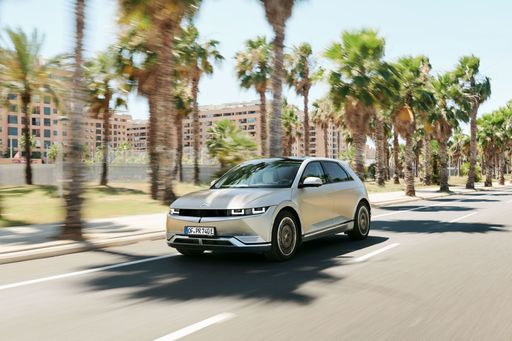
Hyundai IONIQ 5
Hyundai IONIQ 5
The Hyundai IONIQ 5 looks like a spaceship that moved into suburbia, pairing bold retro‑futuristic styling with a roomy, cleverly laid-out cabin that makes long trips surprisingly comfortable. Its electric character delivers instant, silky acceleration and low running costs, making it a smart, slightly cheeky pick for buyers who want tech, practicality and personality without the drama.
details
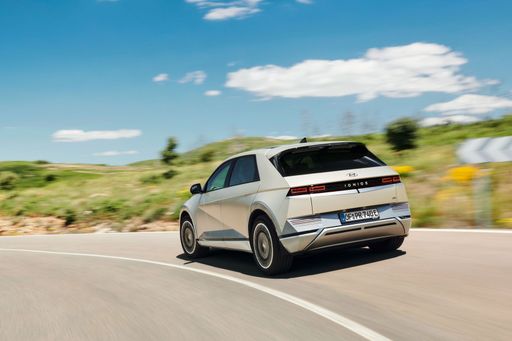
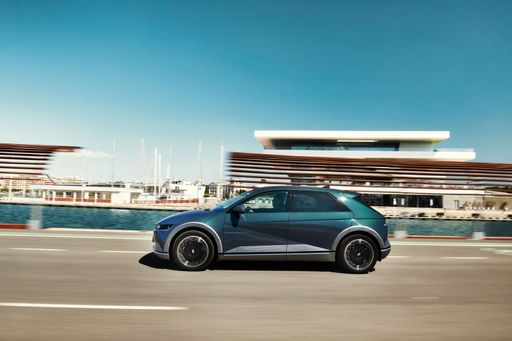
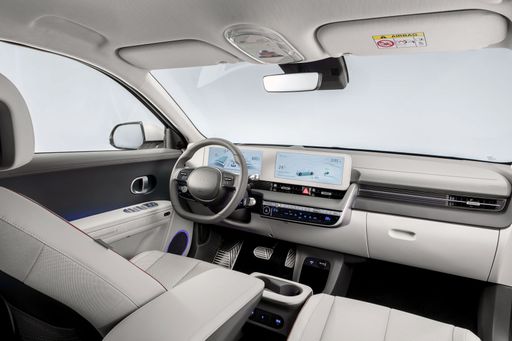
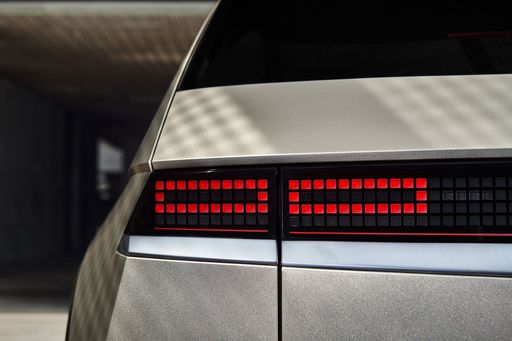
Genesis GV70
The Genesis GV70 pairs coupe-like styling with a sumptuous, high-quality interior that feels more like a bespoke lounge than a typical compact crossover. It drives with composure and poise, offering a supremely comfortable daily companion that quietly challenges established luxury names while giving buyers plenty of premium kit for the money.
details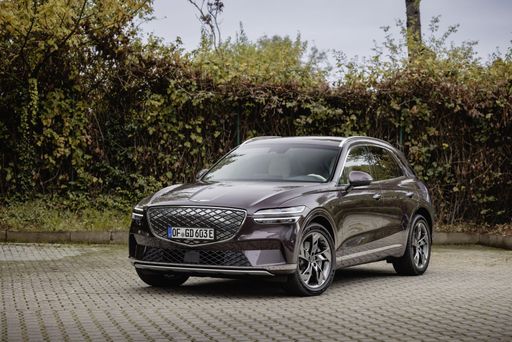
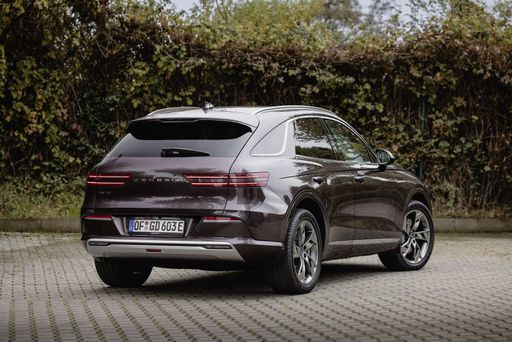
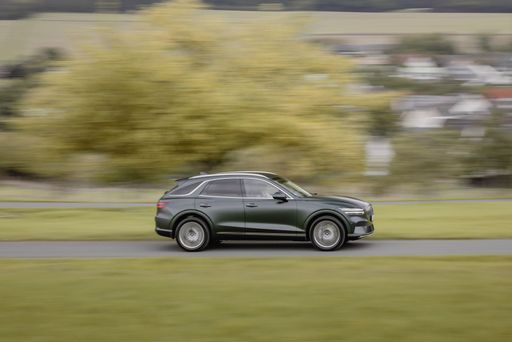
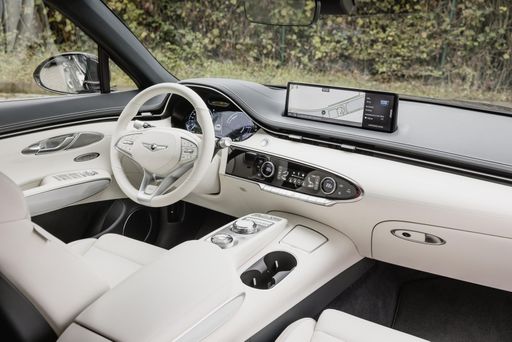
Costs and Consumption |
|
|---|---|
|
Price
38500 - 64200 £
|
Price
59200 - 64500 £
|
|
Consumption L/100km
-
|
Consumption L/100km
-
|
|
Consumption kWh/100km
15.6 - 21.2 kWh
|
Consumption kWh/100km
19.40 kWh
|
|
Electric Range
440 - 570 km
|
Electric Range
479 km
|
|
Battery Capacity
63 - 84 kWh
|
Battery Capacity
-
|
|
co2
0 g/km
|
co2
0 g/km
|
|
Fuel tank capacity
-
|
Fuel tank capacity
-
|
Dimensions and Body |
|
|---|---|
|
Body Type
SUV
|
Body Type
SUV
|
|
Seats
5
|
Seats
5
|
|
Doors
5
|
Doors
-
|
|
Curb weight
1955 - 2275 kg
|
Curb weight
2335 kg
|
|
Trunk capacity
480 - 520 L
|
Trunk capacity
503 L
|
|
Length
4655 - 4715 mm
|
Length
-
|
|
Width
1890 - 1940 mm
|
Width
1910 mm
|
|
Height
1585 - 1605 mm
|
Height
-
|
|
Max trunk capacity
1540 - 1580 L
|
Max trunk capacity
-
|
|
Payload
385 - 530 kg
|
Payload
515 kg
|
Engine and Performance |
|
|---|---|
|
Engine Type
Electric
|
Engine Type
Electric
|
|
Transmission
Automatic
|
Transmission
Automatic
|
|
Transmission Detail
Reduction Gearbox
|
Transmission Detail
Reduction Gearbox
|
|
Drive Type
Rear-Wheel Drive, All-Wheel Drive
|
Drive Type
All-Wheel Drive
|
|
Power HP
170 - 650 HP
|
Power HP
490 HP
|
|
Acceleration 0-100km/h
3.5 - 8.5 s
|
Acceleration 0-100km/h
4.40 s
|
|
Max Speed
185 - 260 km/h
|
Max Speed
-
|
|
Torque
350 - 770 Nm
|
Torque
700 Nm
|
|
Number of Cylinders
-
|
Number of Cylinders
-
|
|
Power kW
125 - 478 kW
|
Power kW
360 kW
|
|
Engine capacity
-
|
Engine capacity
-
|
General |
|
|---|---|
|
Model Year
2024 - 2025
|
Model Year
2025
|
|
CO2 Efficiency Class
A
|
CO2 Efficiency Class
A
|
|
Brand
Hyundai
|
Brand
Genesis
|
What drive types are available for the Hyundai IONIQ 5?
The Hyundai IONIQ 5 is available as Rear-Wheel Drive or All-Wheel Drive.




